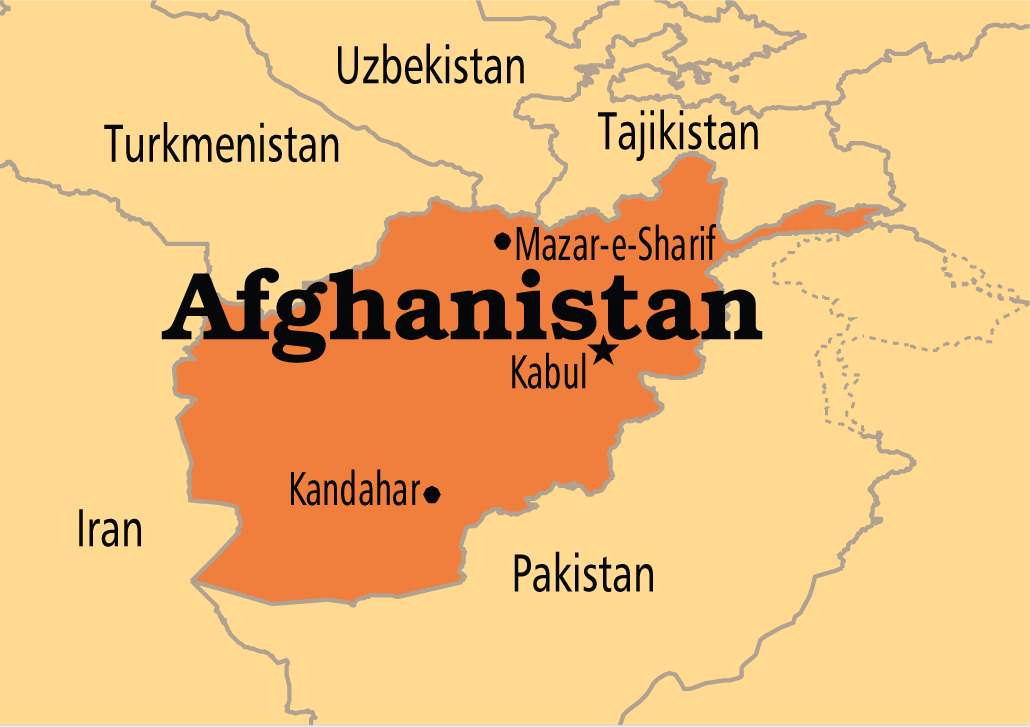International Relations
Regional Security Dialogue on Afghanistan: Delhi
- 09 Nov 2021
- 6 min read
Why in News
In the coming days, India will be hosting the ‘Delhi Regional Security Dialogue on Afghanistan’.
- The meeting will be held at the level of National Security Advisors (NSAs) and will be chaired by India’s NSA Ajit Doval.
Key Points
- About the Meeting:
- Invited Participants: India’s top security establishment, the National Security Council Secretariat, has taken the lead in organising the in-person meeting.
- Invitations were sent to Afghanistan’s neighbours such as Pakistan, Iran, Tajikistan, and Uzbekistan, and other key players including Russia, and China.
- Need: After the withdrawal of US forces and the Taliban’s takeover of Afghanistan, India is concerned about security in the region.
- Objective: In this context, India has taken this initiative to organise a conference of regional stakeholders and important powers on the country’s current situation and future outlook.
- India’s Interest: This meeting could be India’s attempt to secure for itself a seat at the table to decide the future course of action on Afghanistan.
- The meeting also reflects the need to actively engage with the world to protect India’s security interests.
- Participants’ Response: The Central Asian countries, as well as Russia and Iran, have confirmed participation.
- The enthusiastic response is a manifestation of the importance attached to India’s role in regional efforts to promote peace and security in Afghanistan.
- Pakistan and China’s Denial: Pakistan’s National Security Advisor has held that he would not attend the meeting.
- China has also decided to skip a regional security meeting due to scheduling difficulties, but is open to maintaining discussions with India through bilateral channels.
- India is of the view that the denial by Pakistan to attend this meeting reflects its mindset of viewing Afghanistan as its protectorate.
- Invited Participants: India’s top security establishment, the National Security Council Secretariat, has taken the lead in organising the in-person meeting.
National Security Council Secretariat
- India formed a National Security Council (NSC) in 1999, where all aspects of national security are deliberated upon by it.
- NSC acts as the apex body, headed by the Prime Minister.
- NSC comprises the three-tier structure- Strategic Policy Group (SPG), the National Security Advisory Board (NSAB) and the National Security Council Secretariat.
- The Ministers of Home Affairs, Defence, External Affairs and Finance are its members and the National Security Adviser acts as its Secretary.
- India’s Stakes in Afghanistan:
- Strategic Advantage: India’s strategy in Afghanistan is guided by the desire to prevent a government that would readily provide Pakistan with strategic depth and a safe haven for terror groups.
- Deploying Soft Power: India has opted to pursue a ‘soft power’ strategy to engage Afghanistan, preferring to contribute substantially in the civilian sector rather than in defence and security.
- Developmental Projects: India is particularly active in the construction, infrastructure, human capital building and mining sectors.
- Besides, it has also identified the telecommunications, health, pharmaceuticals, and information technology and education sectors for cooperation.
- Economic Aid: Within the framework of two bilateral agreements, India has pledged over USD 2 billion in aid to Afghanistan. And, by the end of the year 2017, the investment has already crossed USD 3 billion.
- This makes India one of the largest investors in Afghanistan’s stability and the quest for economic and social development.
- Connectivity Projects: India has also agreed to build the 600-km-long Bamiyan – Herat rail link which will serve to connect the Hajigak mines to Herat.
- Further, India is developing the Iranian port of Chabahar which will be linked to Afghanistan via the Delaram-Zaranj highway.
- If peace is established in Afghanistan, it could become a major trading hub as a corridor of connectivity in the heart of Asia.
- India’s Viewpoint on Afghanistan:
- India is not ready to directly deal with the new Taliban dispensation in Afghanistan.
- India reiterates that Afghanistan should:
- Not allow safe havens for terror on its soil.
- The administration should be inclusive.
- The rights of minorities, women, and children must be protected.
- The Afghanistan peace process should be led, owned and controlled by the Afghan people.
Way Forward
- Russian Support: Russia has cultivated links with the Taliban in recent years. India would need Russia’s support in any form of direct engagement with the Taliban.
- Bonhomie With China: India should talk with China, with the objective of finding a political settlement and lasting stability in Afghanistan.
- Engaging with Taliban: Talking to the Taliban would allow India to seek security guarantees from the insurgents in return for continued development assistance or other pledges as well as explore the possibility of the Taliban’s autonomy from Pakistan.





